Jenny Allen tells us about her struggle to have her overactive thyroid diagnosed and the devastating effects this had on her life and family
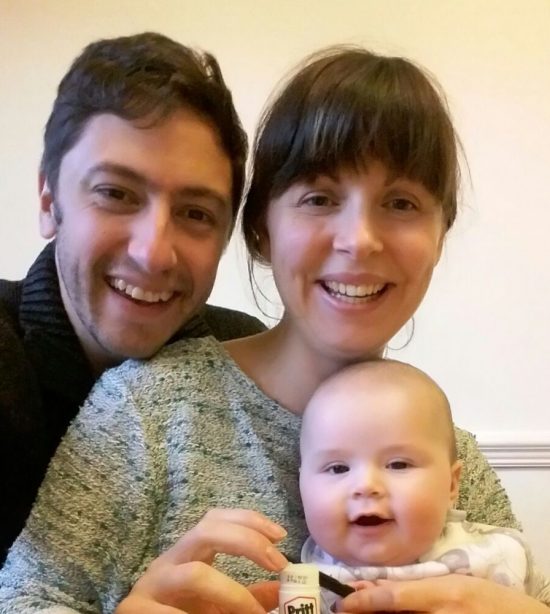
Up to 10% of women get postpartum thyroiditis after birth, but from my experience nobody seems to know about or understand it.
‘I call it a battle with postpartum thyroiditis because that is what it was. To find someone to listen, to understand, or even to know about the symptoms and nature of postpartum thyroiditis, was impossible.
I thought I was going to die and truly believe that I am here now only because I have three incredibly supportive family members.
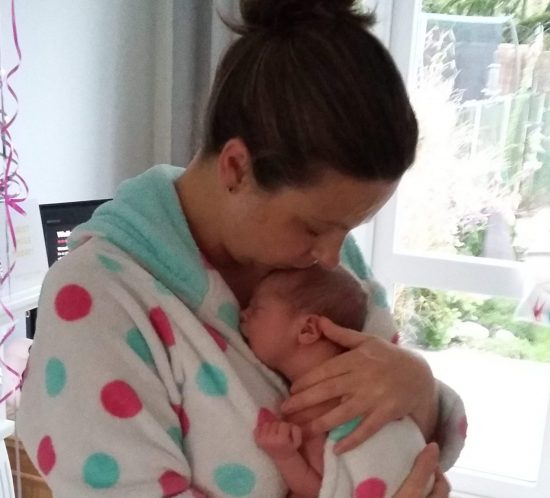
I gave birth to a beautiful baby girl on 7 July 2017.
I was happy and my life felt complete. I slipped into the role of mum far better than I thought I would.
I overcame the initial hurdles of breastfeeding and was overwhelmed by the joy this brought. We spent three months, walking, talking, reading, doing yoga and meeting friends.
In October I obtained a Master’s degree which I’d completed whilst pregnant. Life was good.
The only thing I found frustrating was that, even though my daughter slept through, every now and again I would be wide awake for most of the night.
I began to get nervous about going to bed and could think of nothing but sleep. I made a doctor’s appointment and there was a suggestion of postnatal depression. I was referred to mental health services.
I felt desperate – my mind was whirring and I was sleep deprived
I was constantly asking myself ‘Have you switched off? Are you thinking about sleeping? Are you depressed? Can people see you are depressed? Do people think you haven’t bonded with your baby? What are you thinking about now?’
I was prescribed sertraline for ‘my anxiety’ and sent on my way.
I have always been proactive with my mental health and so I attended a meditation class, organised Cognitive Behavioural Therapy (CBT) and made a healthy meal plan.
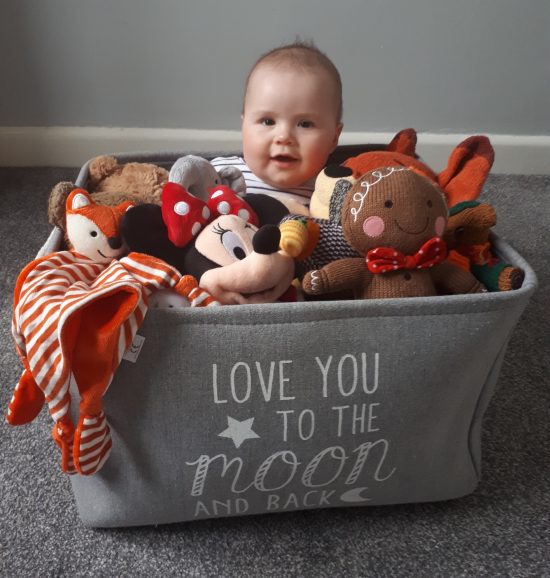
All this time I doubted something. This was not depression and anxiety – it happened overnight. How could the change have been so drastic and quick?
Then it got worse. It felt like my life was gone. Being awake was like torture yet I couldn’t sleep – which left me considering how I could end it all.
I ran into oncoming traffic in my pyjamas, banged my head repeatedly against the wall and floor and scratched my arms.
I just wanted to hurt myself so I would think about the pain and not my own thoughts.
My family watched 24 hours a day, scared of what I might do. I went to the doctors again, a mess. I screamed and cried like I never have before from the pit of my stomach. I couldn’t live. I couldn’t go on. What was happening to me?
I was begging them all to listen.
I knew the diagnosis
was wrong
The doctor referred me immediately to the psychiatric crisis team at the hospital.
I was prescribed various drugs and had to stop breastfeeding.
I had by now read everything I could about postnatal anxiety. I did not fit the bill. There were so many symptoms missing and so many more that weren’t described.
I continued to express the feeling that no one understood.
After battling I eventually got my blood results from my doctor. I was told my thyroid was overactive.
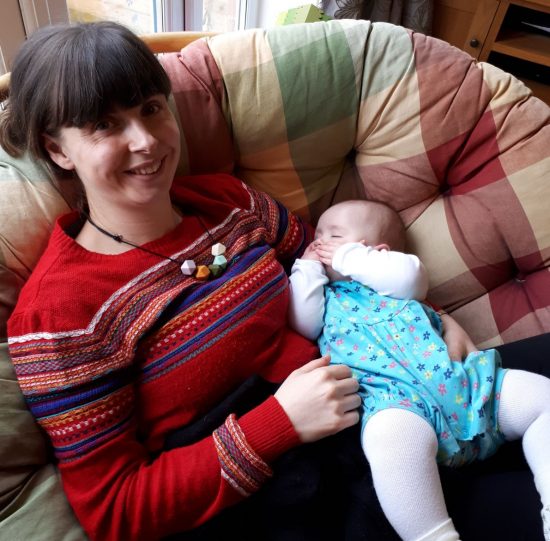
The relief was immeasurable, a diagnosis. Some answers at least.
I managed to fight for an urgent endocrinologist appointment and was prescribed beta-blockers in the meantime.
All this time there was a feeling of doubt from the professionals that an overactive thyroid would present in such a way.
I was, to them, clearly suffering depression and anxiety alongside this. This made me doubt myself and fear for my own sanity.
Things got worse. One afternoon my partner had to restrain me from banging my head on the floor screaming ‘make it stop’.
At A&E one woman really listened. She spoke to me like an equal – like I knew something about what was happening to my own body.
I read about postpartum thyroditis and found out that having an overactive thyroid could cause mental disturbances, mood swings and inappropriate anxiety.
I also found out that after the overactive phase (hyper) your thyroid could return to normal or become underactive (hypo) and present with another set of symptoms.
I went to the endocrinologist armed with questions, knowledge and my advocate, my mum. But the appointment lasted less than 10 minutes and blood results were used that had been taken three weeks earlier to form the basis of his diagnosis.
Medication was prescribed but I was explicitly told that my neurological symptoms were for the psychiatrist to deal with and the fact that I had given birth was not relevant to his diagnosis of Grave’s disease (an overactive thyroid). I was made to feel arrogant for questioning the expert.
The profession was too quick to put me in a box. Once there was a diagnosis of postnatal anxiety and depression it seemed it couldn’t be undone – it was concrete, set in stone.
I felt vindicated, empowered and like I finally had information
about what was happening
to me
Around this time I had started to feel a little better and therefore did not feel comfortable taking the medication prescribed, so I went to my doctors to have a repeat blood test. These results showed my thyroid function was normal.
I cannot explain to you the elation I felt. I cried with relief and happiness.
Two weeks later and a visit to the doctor showed that my thyroid function was now underactive.
The doctor confidently diagnosed postpartum thyroiditis and instructed me to take thyroxine in order to replace the hormone my body should have been making.
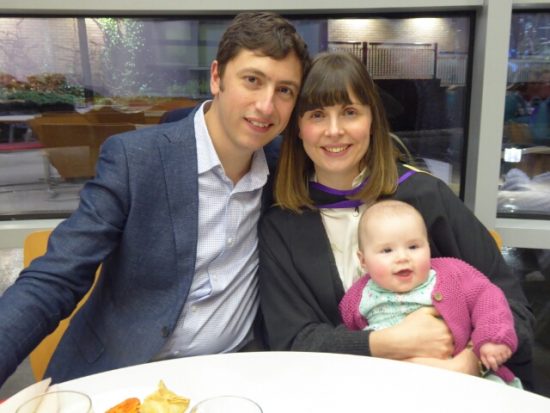
Looking back, I described four symptoms of an overactive thyroid at my six-week postnatal check. I told the doctor I was often wide awake when my baby was asleep, but this was recorded as just new mum tiredness.
If a blood test had been taken as a first port of call, I could have continued breastfeeding. I could have perhaps avoided the extreme symptoms and I could certainly have saved the NHS thousands.
And I would not have lost months of time with my beautiful daughter.
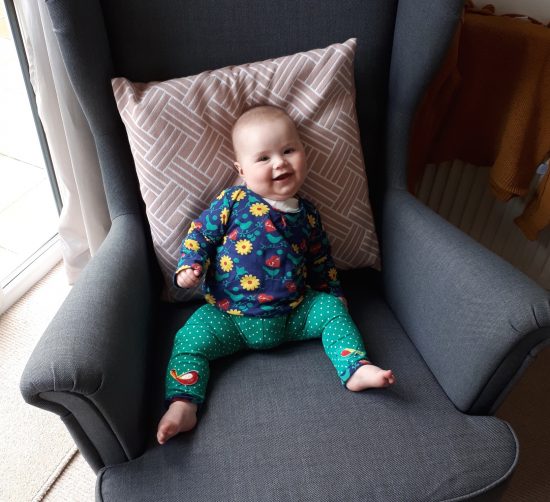
Perhaps there are many more cases misdiagnosed as postnatal depression – dismissed and not understood.
I am now left with anxiety and depression, very aware of my own thoughts and constantly wondering how my thyroid is functioning.
I share my story to raise awareness. To be a silent friend so that other women can read and feel someone understands.
I want other women to be informed, listened to and acknowledged. We know our own bodies better than anyone.’
In postpartum thyroiditis, the immune system attacks the thyroid within around six months of giving birth, causing a temporary rise in thyroid hormone levels (thyrotoxicosis). Symptoms include:
Then, after a few weeks, the gland may become depleted of thyroid hormone, leading to low thyroid hormone levels. Symptoms include:
NHS information on postpartum thyroiditis
For practical and emotional support in all areas of pregnancy, birth and early parenthood including help with feeding call our helpline on 0300 330 0700, or visit our website by clicking here.
If you want to get in touch with Jenny, see Twitter @jeneall.